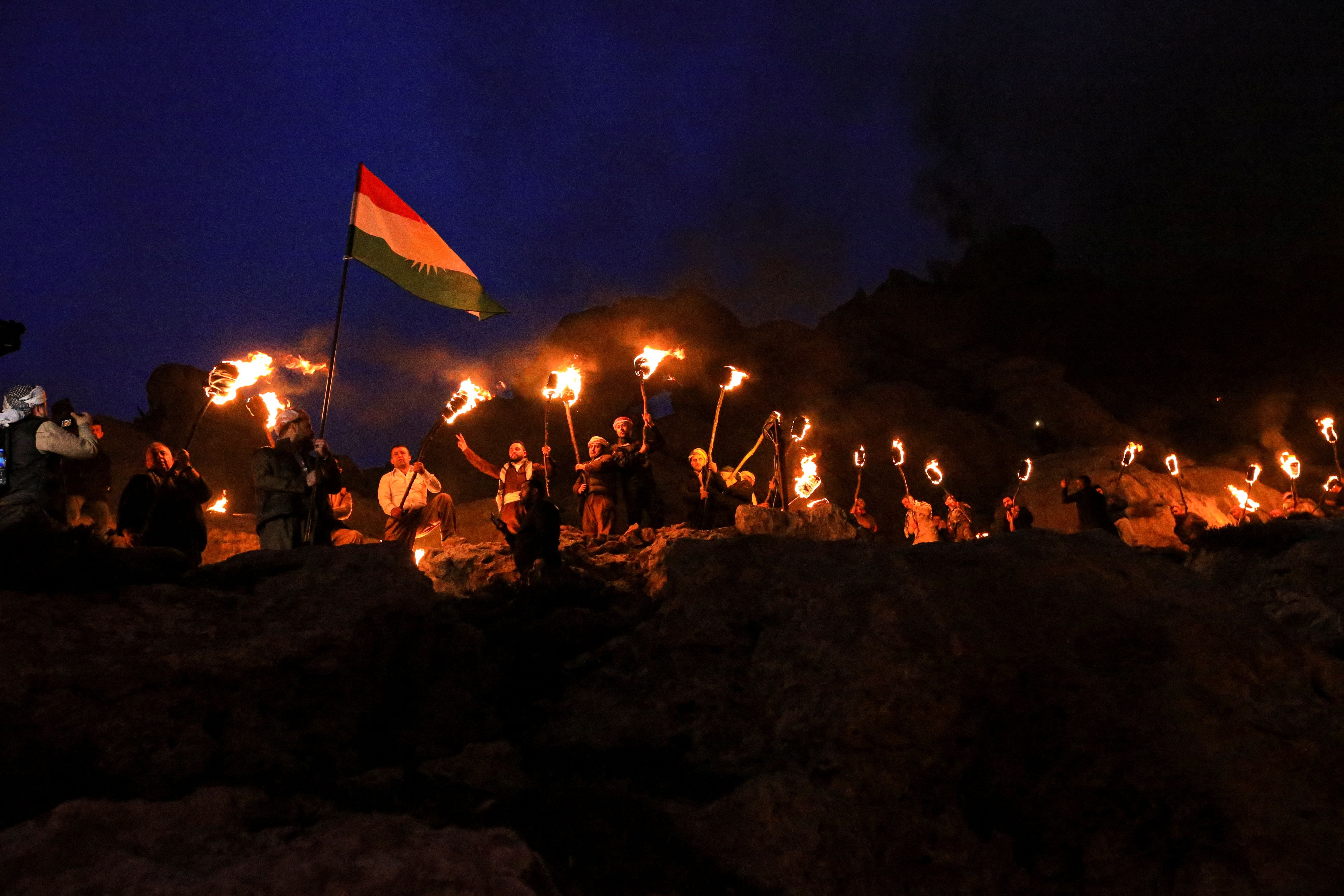
Israeli Prime Minister Naftali Bennett, in a message on the occasion of the Persian New Year, Nowruz, wished the Iranians a change of political regime. “Nowruz literally means 'new day'. And that is my greatest wish for you, that you will see a new day, a day of freedom from the cruel Iranian regime.”
Israel considers Iran an “existential threat” and both countries have been at odds since the Islamic revolution of 1979, which overthrew the Western-backed Shah. Bennett's statements also come when Israel has vehemently opposed the revival of the 2015 nuclear agreement between Iran and world powers.
In an English-language video, Bennett stated that the Israeli people and the Iranian people have much in common. “We are both vibrant peoples, with ancient histories and rich cultures, looking for a better future.”
He said, “Together, we also face a common threat: the brutal and oppressive Iranian regime, be it the Islamic Revolutionary Guard Corps, the largest terrorist organization in the world, its proxies, or the Basij.”
“We know that the Iranian regime does not represent them and continues to deny the freedom they deserve,” he insisted, appealing directly to Iranians who want peace. He added: “We hope that they will free themselves from this cruel and ruthless regime and achieve true freedom.”
“Nowruz Piruz, Happy Nowruz. Let us see a “new day” in which we defeat the forces of darkness with the strength of our friendship,” said the premier. He concluded: “I hope that this new year will free the Iranian people from the shackles of regime oppression and that their love of life will prevail over tyranny and terror. I look forward to the day when we can be friends again.”
Nowruz, another survivor of the Islamic revolution
With a history that goes back 3,000 years and which plunges its origins into Zoroastrianism, Nowruz or new day is celebrated on the spring equinox and marks the solar Persian New Year, in this case 1401.
But this millennial survived the Islamic Revolution, which has tried in vain to suppress this pagan holiday.
After the Islamic revolution of 1979, the Ayatollahs tried to eliminate this tradition, which represents the end of winter darkness and the arrival of light and fertility, considering that it was an anti-Islamic pagan holiday.

“I ask all those who celebrate the rituals they call Nowruz to moderate themselves this year,” Ayatollah Ruhollah Khomeini, founder of the Islamic Republic of Iran, requested in 1981.
But the call of the supreme leader was in vain.
Iran is a largely Muslim country and Zoroastrians represent a minuscule part of its population, but the holiday lives on and it is perhaps the most Iranian celebration there is.
“They told us not to celebrate it, that we had instead Eid al Fitr (end of the Ramadan fast) or the birth of the prophet, which are Muslim holidays,” a neighbor from Tehran tells Ephe. “But Nowruz is an important holiday for us, a very old tradition. We are still celebrating it,” says this businessman.
As writer Ramita Navai explains, “Nowruz and everything related to it is as culturally important to Iranians as Muslim holidays”, so the regime “could not win” in its attempt to eliminate it. “It is a pagan memory of Zoroastrianism and the regime declared it anti-Islamic because of it,” continues the fellow journalist in her book “City of Lies”, about the Iranian capital.
The historian Ervand Abrahamian explains that after the victory of the religious the aim was to “Islamize Iran.” The extremists asked to remove Nowruz from the official calendar and turn the ancient ruins of Persepolis into a public urinal,” he tells in his book “A History of Modern Iran”. “For them, any sign of respect for pre-Islamic Iran exuded paganism,” says the historian.
“Nowruz is the beginning of spring, the arrival of light, when everything blooms and plants grow,” says the neighbor from Tehran. “We will continue to celebrate it, it's part of our history,” he says.
KEEP READING:
Últimas Noticias
Debanhi Escobar: they secured the motel where she was found lifeless in a cistern

The oldest person in the world died at the age of 119

Macabre find in CDMX: they left a body bagged and tied in a taxi
The eagles of America will face Manchester City in a duel of legends. Here are the details

Why is it good to bring dogs out to know the world when they are puppies




